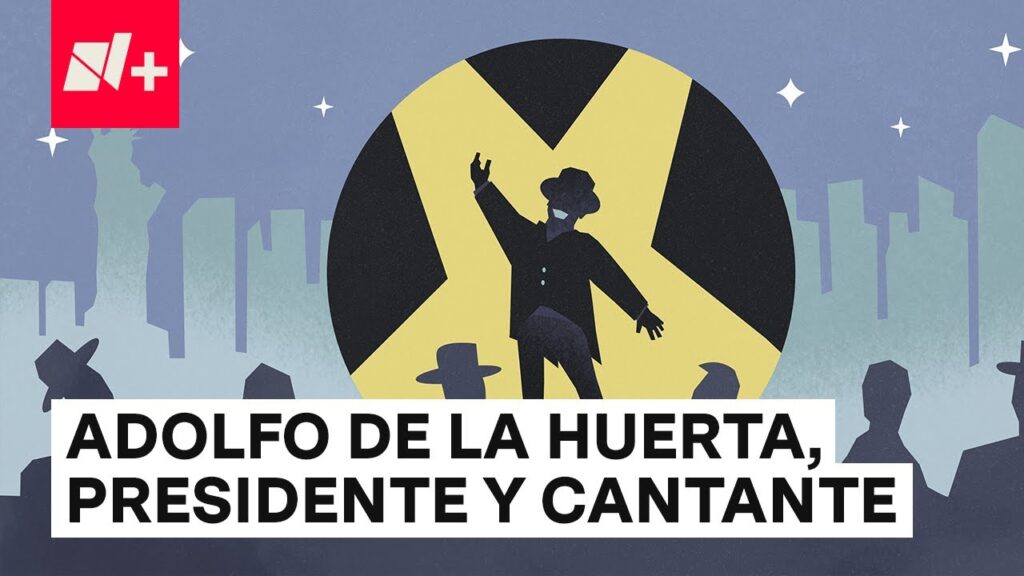Adolfo de la Huerta: A Formidable Opponent to Díaz
Adolfo de la Huerta, a prominent figure in Mexico’s political scene during the early 20th century, is often remembered as a staunch opponent to the long-standing authoritarian rule of President Porfirio Díaz. As the political landscape of Mexico was increasingly clouded by the shadow of Díaz’s prolonged presidency, de la Huerta emerged as a voice for democratic principles and the empowerment of the Mexican people.
Initially, de la Huerta’s political career was not marked by outright opposition to Díaz. However, the escalating tension between the demands of the Mexican Revolution and the rigid grip of the current government nudged him closer to the revolutionary cause. His strong advocacy for democratic governance and social justice started to resonate with the rising tide of change sweeping across the nation. His political acumen and foresight positioned him as a key player in the eventual downfall of Díaz’s regime.
Amidst his political journey, de la Huerta became renowned for his ability to unify various revolutionary factions, showcasing his formidable skills in leadership and negotiation. His unwavering commitment to seeing Mexico transition to a more democratic and just society made him a beloved figure among many Mexicans. Despite facing numerous challenges, including political intrigue and threats to his life, de la Huerta’s resolve did not waver, cementing his legacy as a tenacious and courageous opponent to the dictatorial rule of Porfirio Díaz.
The Political Battles of Adolfo de la Huerta
Adolfo de la Huerta holds a notable place in Mexico’s political history, especially for his involvement in the tumultuous period following the Mexican Revolution. In December 1920, he assumed the role of interim President of Mexico after the overthrow of President Carranza, which was a period marked by a quest for stability and the implementation of significant political reforms.
However, de la Huerta’s most significant political battle occurred in 1923, when he led a failed revolt known as the De la Huerta Rebellion. This uprising against the government of President Álvaro Obregón marked a critical juncture in post-revolutionary Mexico. His movement, fueled by allegations of corruption and the mishandling of post-war issues, attracted military support but ultimately failed, leading de la Huerta into exile to avoid severe repercussions.
The aftermath of the rebellion highlighted the shifting dynamics within Mexican politics. The suppression of de la Huerta’s movement demonstrated the government’s resolve in maintaining power, but it also set the stage for subsequent political reorganization. It paved the way for the creation of the National Revolutionary Party (PNR), which later evolved into the Institutional Revolutionary Party (PRI), signaling a move towards a more structured political framework.
De la Huerta’s legacy as a political combatant is reflective of the broader narrative of Mexico’s journey towards a stabilized governmental system. While his time in power was brief, his impact on the political landscape was significant, setting precedents for the role of military influence in Mexican politics and the continuing evolution of political parties in shaping the nation’s governance.
Adolfo de la Huerta: Fighting from Multiple Fronts
Adolfo de la Huerta’s legacy in Mexico is a mosaic of battles, both literal and figurative. As a prominent political figure of the early 20th century, he played a central role in a period fraught with revolution and reform. In 1920, his interim presidency became a critical pivot point, bridging the gap between upheaval and the search for stability. De la Huerta assumed the presidency following the overthrow of former President Carranza, promising a return to constitutional order and paving the way for election reforms and the eventual peaceful transfer of power to Álvaro Obregón.
De la Huerta’s presidency, although short-lived, was marked by efforts to stabilize Mexico’s economy and pacify warring factions. His administration faced the daunting charge of rebuilding a nation scarred by years of conflict. One of his notable financial strategies was to stabilize the currency, which was critical in establishing a sense of normalcy for commerce and daily life. Yet, he grappled with the immense challenge of satisfying the diverse demands of revolutionaries, conservatives, and the labor movement—all stakeholders in Mexico’s path forward.
De la Huerta was not only a political warrior but also a literal combatant. After his interim presidency, during the rebellion known as the De la Huerta Revolt in 1923, he challenged the sitting government of President Obregón in an assertion of discontent over government corruption and the influence of foreign companies in national politics. This uprising showcased his commitment to fighting for what he deemed just, even if it led to armed conflict. His tenacity cemented his role as a fighter, although the revolt ultimately failed, leading him to flee to exile.
His contributions to music and culture also tell the tale of a man engaged in the fight for cultural identity. Adolfo de la Huerta was an avid musician and proponent of the arts, understanding that alongside political and military engagement, cultural richness was paramount in defining a nation’s identity. He championed Mexican folk music and sought to foster a sense of national pride through artistic expression. Thus, his battles were not only fought with weapons and policies but with melodies and cultural pursuits as well.
The Legacy of Adolfo de la Huerta in Mexican Politics
Adolfo de la Huerta holds a significant place in Mexican history. As a leader during the tumultuous period following the Mexican Revolution, his short but impactful tenure as interim President of Mexico in 1920 was instrumental in the country’s journey toward stability. De la Huerta’s dedication to reconciliation and economic development during this period set a precedent for his successors and demonstrated a commitment to restoring Mexico’s post-revolutionary government integrity.
Known for his role in the implementation of the Plan of Agua Prieta, which ultimately led to the end of the government of President Venustiano Carranza, de la Huerta’s leadership was pivotal in the landscape of post-revolutionary Mexico. His presidency might have been ephemeral, lasting only from June to November of 1920, but the choices he made during this juncture were vital in shaping the progressive ideals that informed subsequent Mexican governance and policies.
In addition to his political career, de la Huerta is often remembered for his subsequent rebellion against President Álvaro Obregón, which although failing to remove Obregón from power, highlighted the deep-seated divisions within the revolutionary leaders and served as a poignant example of the friction between revolutionary ideals and political realities. The rebellion, quashed in 1924, underscored the challenges of unifying a country with a diverse set of regional and political loyalties.
Despite these conflicts, Adolfo de la Huerta’s contributions to Mexican politics endured. He played a crucial role in developing the country’s financial structure, securing loans necessary for economic recovery, and stabilizing the Mexican peso. His fiscal leadership helped lay the groundwork for Mexico’s future economic policies, which would continue to evolve long after his departure from political office. His legacy is a complex tapestry, embroidered with threads of economic foresight, political acumen, and the stark realities of revolutionary fervor and disappointment.



